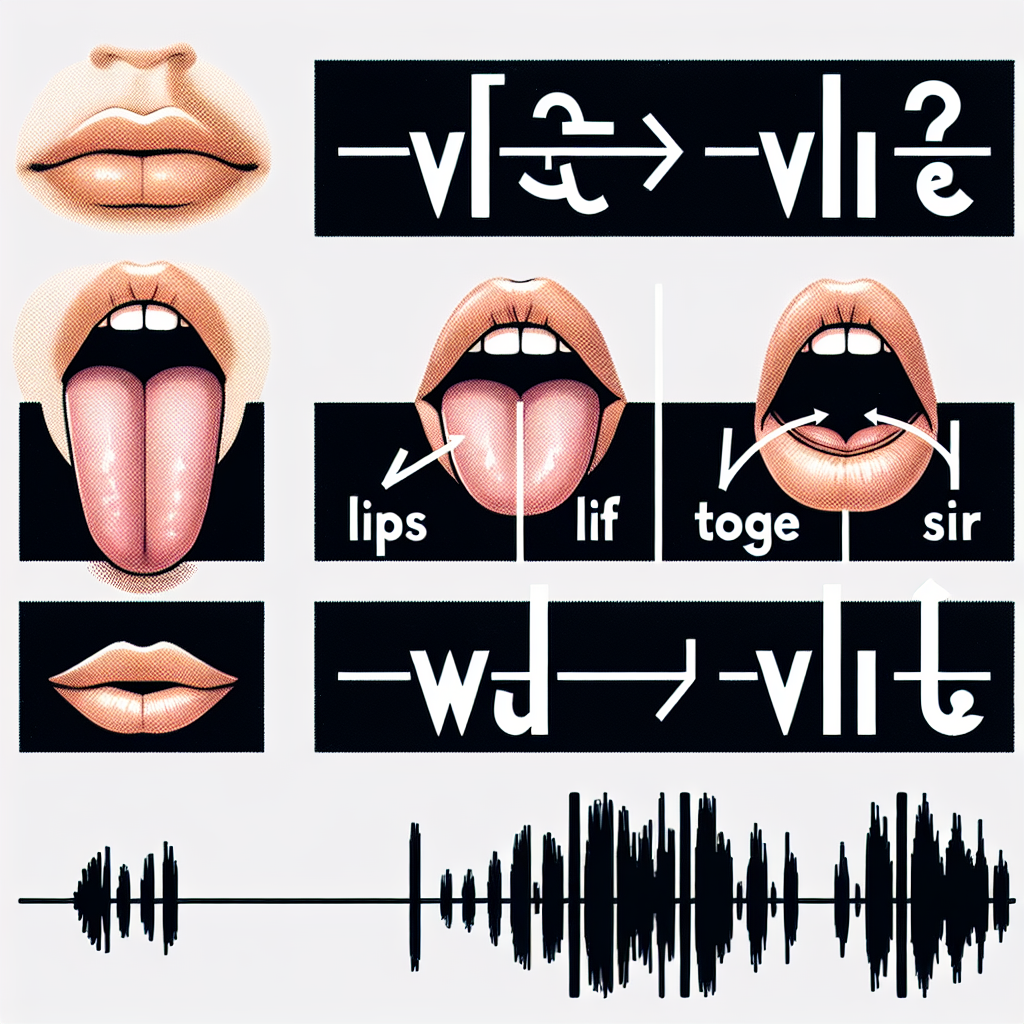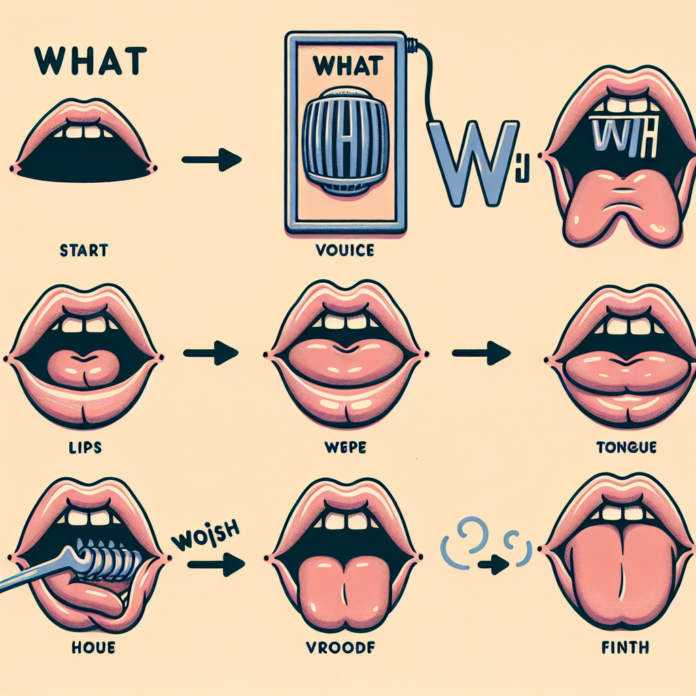-
Table of Contents
- How to Pronounce “What” in English
- The Basics of Pronouncing “What”
- Regional Variations in Pronunciation
- American English
- British English
- Australian English
- Common Mispronunciations and Tips to Improve
- Mispronunciation: “Wut”
- Mispronunciation: “Wha”
- Q&A
- Q: Is there a difference in pronunciation between “what” and “watt”?
- Q: Are there any regional variations in the pronunciation of “what”?
- Q: How can I improve my pronunciation of “what”?
- Q: Are there any tongue twisters or exercises to help with the pronunciation of “what”?
- Q: Can mispronouncing “what” affect communication?
- Summary
How to Pronounce “What” in English

When learning a new language, one of the most challenging aspects can be mastering the correct pronunciation of words. English, with its complex phonetic system and numerous exceptions, can be particularly difficult in this regard. In this article, we will focus on the pronunciation of the word “what” in English, providing valuable insights and tips to help you pronounce it correctly.
The Basics of Pronouncing “What”
The word “what” is a common interrogative pronoun used to ask for information or clarification. In English, it is pronounced as /wɒt/ or /wʌt/. The first sound, /w/, is a voiced labio-velar approximant, which means that the lips are rounded and the back of the tongue approaches the soft palate. The second sound, /ɒ/ or /ʌ/, is a short vowel sound that can vary depending on regional accents.
When pronouncing the word “what,” it is important to pay attention to the following aspects:
- Start with the /w/ sound: To produce the /w/ sound, round your lips and bring the back of your tongue close to the soft palate without touching it. This sound is similar to the initial sound in words like “well” or “wonderful.”
- Follow with the short vowel sound: The second sound in “what” can be either /ɒ/ or /ʌ/. The /ɒ/ sound is similar to the vowel sound in “lot” or “hot,” while the /ʌ/ sound is similar to the vowel sound in “but” or “luck.”
- End with the /t/ sound: Finish the word with the /t/ sound, which is an unvoiced alveolar plosive. To produce this sound, place the tip of your tongue against the alveolar ridge (the bumpy area behind your upper teeth) and release a burst of air.
Regional Variations in Pronunciation
English is spoken in various regions around the world, and as a result, there are regional variations in pronunciation. The pronunciation of “what” can differ slightly depending on the accent or dialect. Let’s explore some of the common regional variations:
American English
In American English, the pronunciation of “what” often involves a slight modification of the /ɒ/ or /ʌ/ sound. It is commonly pronounced as /wɑt/ or /wʌt/. The vowel sound becomes more open and is similar to the sound in “father” or “car.”
British English
In British English, the pronunciation of “what” typically follows the standard /wɒt/ or /wʌt/ pattern. The short vowel sound is closer to /ɒ/ and is similar to the sound in “lot” or “hot.”
Australian English
Australian English has its own unique pronunciation of “what.” It is often pronounced as /wɒt/ or /wɔt/. The vowel sound is closer to /ɔ/ and is similar to the sound in “thought” or “bought.”
Common Mispronunciations and Tips to Improve
When learning to pronounce “what” in English, it is common to encounter certain mispronunciations. Here are some of the most common mistakes and tips to improve your pronunciation:
Mispronunciation: “Wut”
Some non-native English speakers may pronounce “what” as “wut,” omitting the /h/ sound. This can make the word sound unclear or unfamiliar to native speakers.
Tips to Improve: Practice pronouncing the /h/ sound by exhaling a small amount of air while keeping your vocal cords relaxed. Place your hand in front of your mouth and feel the slight breath as you say “what.” With practice, you will be able to produce the /h/ sound more naturally.
Mispronunciation: “Wha”
Another common mispronunciation is saying “wha” instead of “what.” This occurs when the /t/ sound is not pronounced clearly, resulting in a truncated word.
Tips to Improve: Pay attention to the /t/ sound at the end of “what” and make sure to release a clear burst of air. Practice saying the word slowly and exaggerate the /t/ sound until it becomes more natural.
Q&A
Q: Is there a difference in pronunciation between “what” and “watt”?
A: Yes, there is a difference in pronunciation between “what” and “watt.” “What” is pronounced with a short vowel sound, while “watt” is pronounced with a long vowel sound. The word “watt” is often used to refer to a unit of power.
Q: Are there any regional variations in the pronunciation of “what”?
A: Yes, there are regional variations in the pronunciation of “what.” American English, British English, and Australian English have slightly different pronunciations of the word. These variations are influenced by the specific accents and dialects of each region.
Q: How can I improve my pronunciation of “what”?
A: To improve your pronunciation of “what,” practice the individual sounds (/w/, /ɒ/ or /ʌ/, and /t/) separately. Pay attention to the position of your lips, tongue, and vocal cords while producing these sounds. Record yourself saying the word and compare it to native speakers’ pronunciation to identify areas for improvement.
Q: Are there any tongue twisters or exercises to help with the pronunciation of “what”?
A: Yes, tongue twisters and exercises can be helpful in improving your pronunciation skills. Here’s an example: “What a wonderful world we live in.” Repeat this phrase slowly and gradually increase your speed. Focus on enunciating each sound clearly.
Q: Can mispronouncing “what” affect communication?
A: Yes, mispronouncing “what” can affect communication, especially in situations where clarity is crucial. Native English speakers may find it difficult to understand or misinterpret the intended meaning if the word is pronounced incorrectly. Therefore, it is important to practice and improve your pronunciation to enhance effective communication.
Summary
Pronouncing “what” correctly in English is essential for effective communication. Remember to start with the /w/ sound, follow with the short vowel sound (/ɒ/ or /ʌ/), and end with the /t/ sound. Be aware of regional variations in pronunciation, such as the American, British, and










